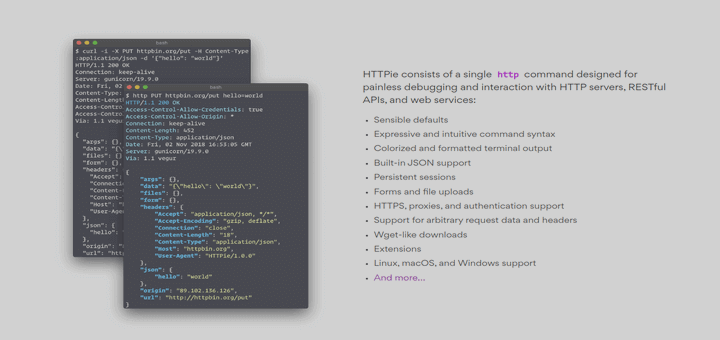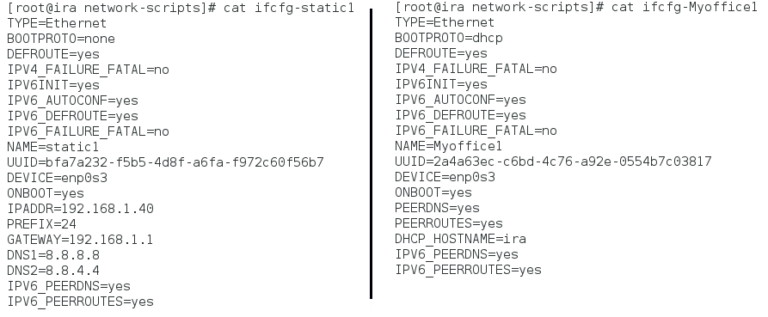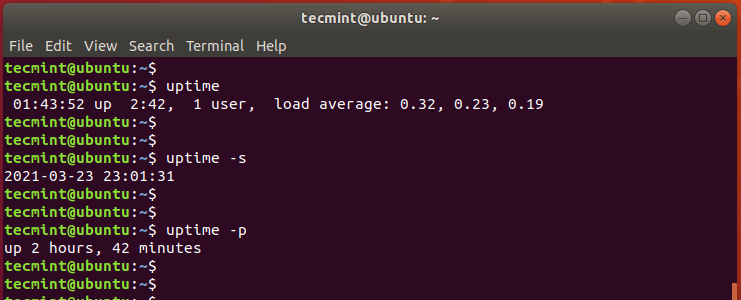
When kicking off your blogging career you have a number of decisions ahead of you. The first, and arguably the most important, is choosing which blogging platform you should use. Because it’s the foundation of your entire website, making the right choice is obviously a primary consideration.
There are dozens of options available, all with their unique benefits and drawbacks. Finding one that’s right for you is a case of knowing what kind of blog you want to create, ascertaining your level of technical experience, and deciding how much you want to customize it.
In this article, we’ll look at three of the most popular alternatives, WordPress, Tumblr, and Medium. We’ll see how they differ from each other, what type of blog each is best suited for, and what you should consider before choosing one. Let’s go!
The Basics of Blogging
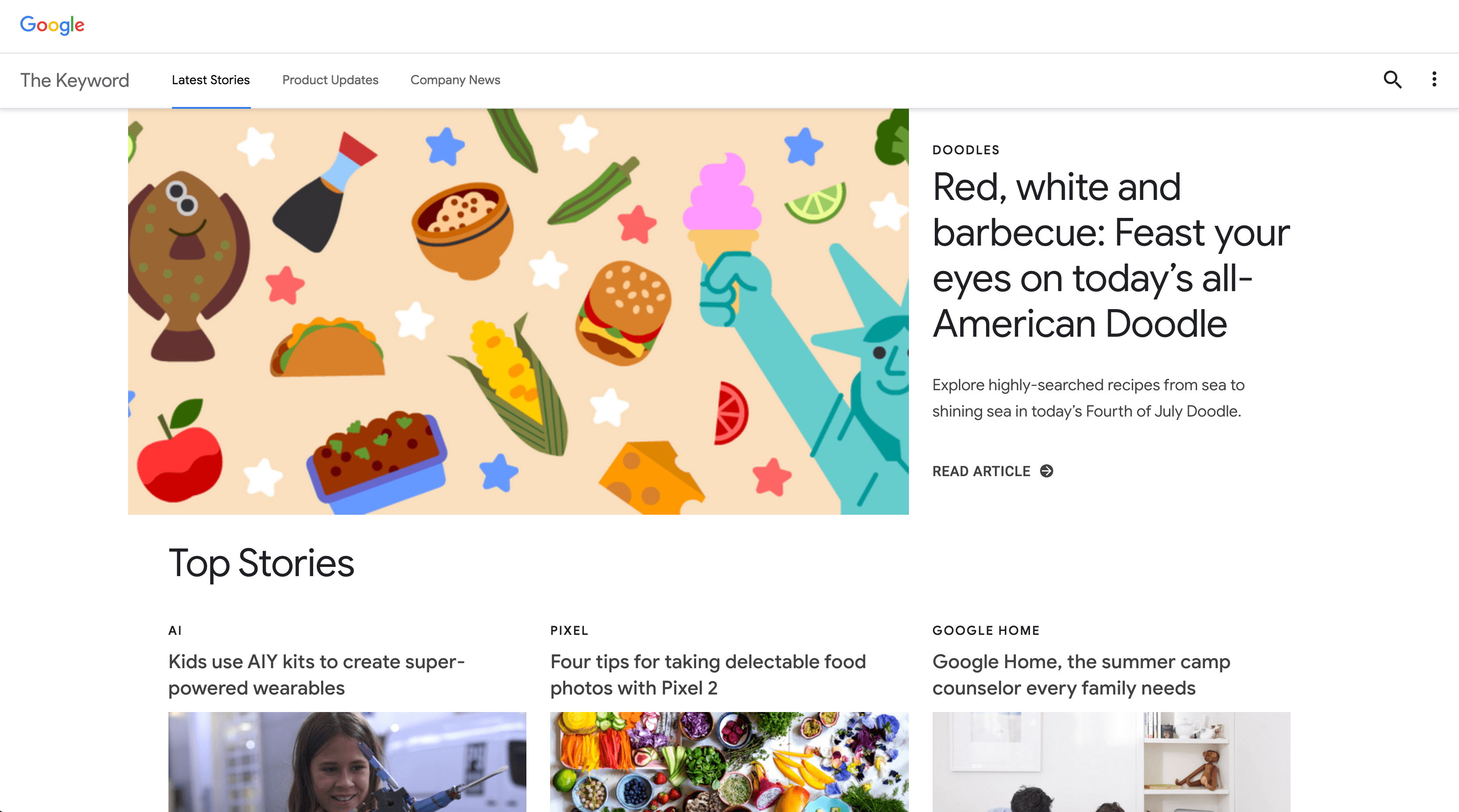
Out of the nearly 2 billion websites on the internet, several hundred million of them are blogs. A single platform contains over 400 million blogs and users, which produces over 65 million posts every month.
If you’re a prospective blogger, these figures might be somewhat intimidating. If there are almost a billion competitors, why should you throw your hat into the ring? In short, blogging is an integral part of the online experience, and there are plenty of reasons why.
For one, blogging enables you to build an audience, whether it’s just for your own personal blog or as part of your business’ marketing efforts. It can also help you find potential clients or collaborators, establish yourself as an authority in your field or niche, and even earn money.
What to Consider When Choosing a Blogging Platform
There are a series of choices you need to make before you can start publishing content. The first and most important of these is which platform to use. Once you’ve chosen a platform, it’s sometimes possible to move your site and content, but this can be a very complicated process. As such, you should choose carefully to avoid giving yourself unnecessary work later on.
To find the right option, you need to have a good idea of what you want your blog to be and what you intend to achieve with it. As such, here are some considerations to be mindful of before you begin:
- What kind of blog you want. In short, define the blog’s intended purpose and content. For example, whether decide it will be text- or image-heavy, and settle on your general article length. Also, consider whether it’s casual or professional (i.e. for your own enjoyment or marketing a business).
- Your degree of experience. Do you want a platform that’s easy to use but constrained, or do you want one with more advanced customization options?
- What you can afford. How much are you prepared and capable to pay? The blog’s purpose will tie into this, as a personal hobby blog does not need to cost anything, while a larger business blog will likely need a more substantial budget.
- If (and how) you want to monetize your blog. You can use your blog to make money, such as by selling products or services, or by featuring ads.
- How big you want it to be. How big do you expect your blog to get, and how much will it need to scale?
Another important point is where the actual blog should be hosted. Many platforms include hosting by default, while others require you to provide it yourself. We’ll look at the specifics of this later, but you may need to study up on the basics of web hosting.
3 Blogging Platforms (And How They Compare Against Each Other)
By now, you should have a good idea of what type of blog you want, so let’s look closer at three popular platforms. We’ll be comparing them to see how they differ to help you pick the perfect one for your blog!
1. WordPress.org
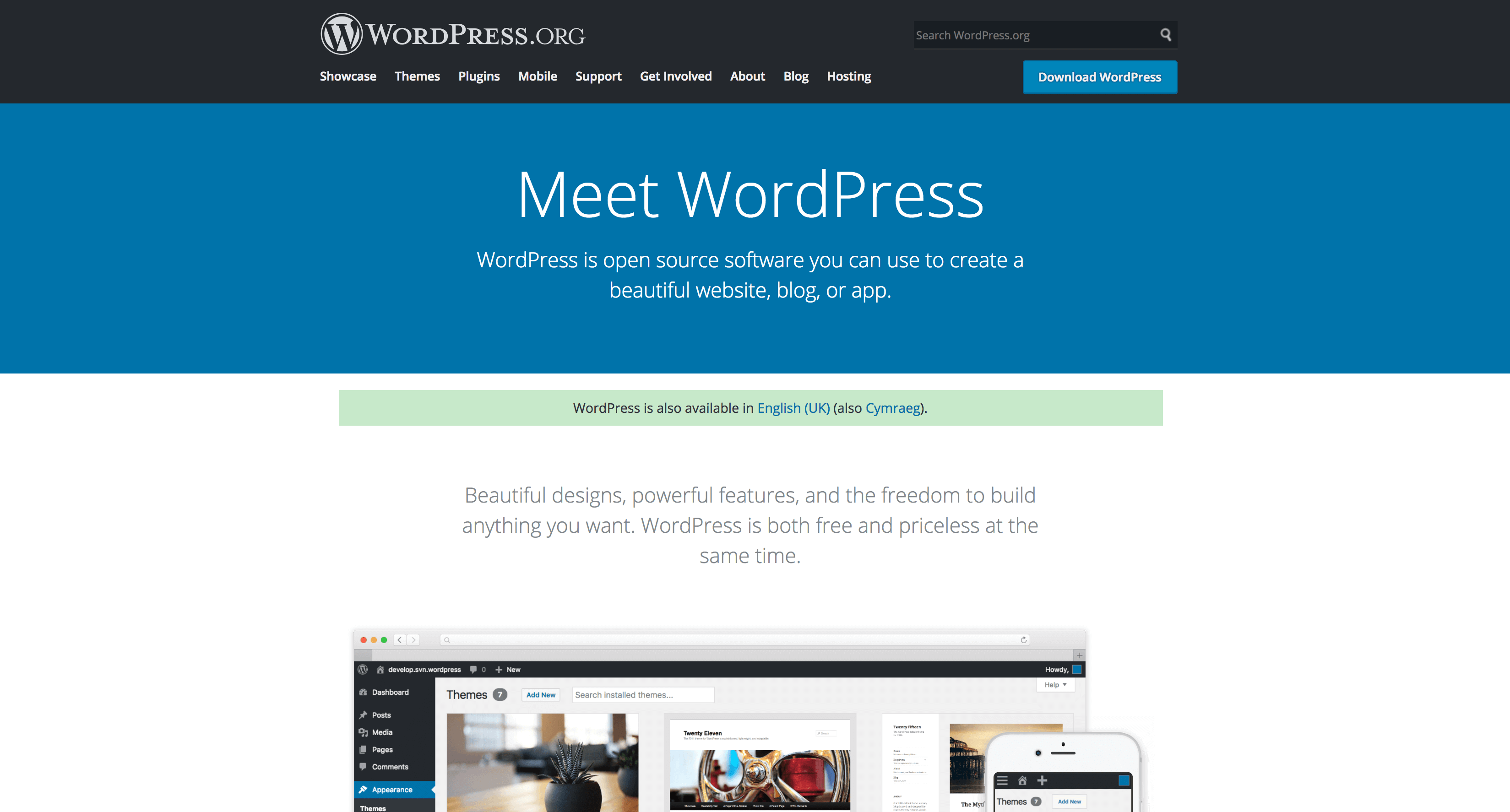
First of all, we’re going to look at WordPress.org. While the name might suggest otherwise, this is actually radically different from WordPress.com. Check out our comparison for more information, but in a nutshell, WordPress.com is a slightly simplified version of WordPress.org.
While WordPress started out as a blogging platform, it has since grown into a full-fledged Content Management System (CMS). However, it’s still a terrific option for creating a blog. In fact, the platform is one of the most popular choices for any type of website, to the point where it’s currently used to run 30% of all websites in existence.
A big part of this is due to its beginner-friendliness and flexibility. WordPress enables almost anybody, regardless of their technical experience, to create gorgeous sites with customizable functionality. You can use themes to modify the look of your site, and plugins to add or change features with just a few clicks. Aspects previously requiring hardcore coding skills can, thanks to WordPress, be achieved by a complete novice in minutes.
The best part is that WordPress suits practically any niche. Whether it’s a place to write about your life and hobbies, or a company blog designed to convert customers, WordPress is perfectly capable of handling both with ease.
The drawback is that while WordPress is completely free and open-source, it doesn’t include hosting. This is because it’s simply software you can install on your site, rather than an all-in-one solution. However, you can purchase dedicated WordPress hosting that enables you to install the software with a single click, and can even take care of technical considerations such as carrying out updates automatically.
2. Tumblr
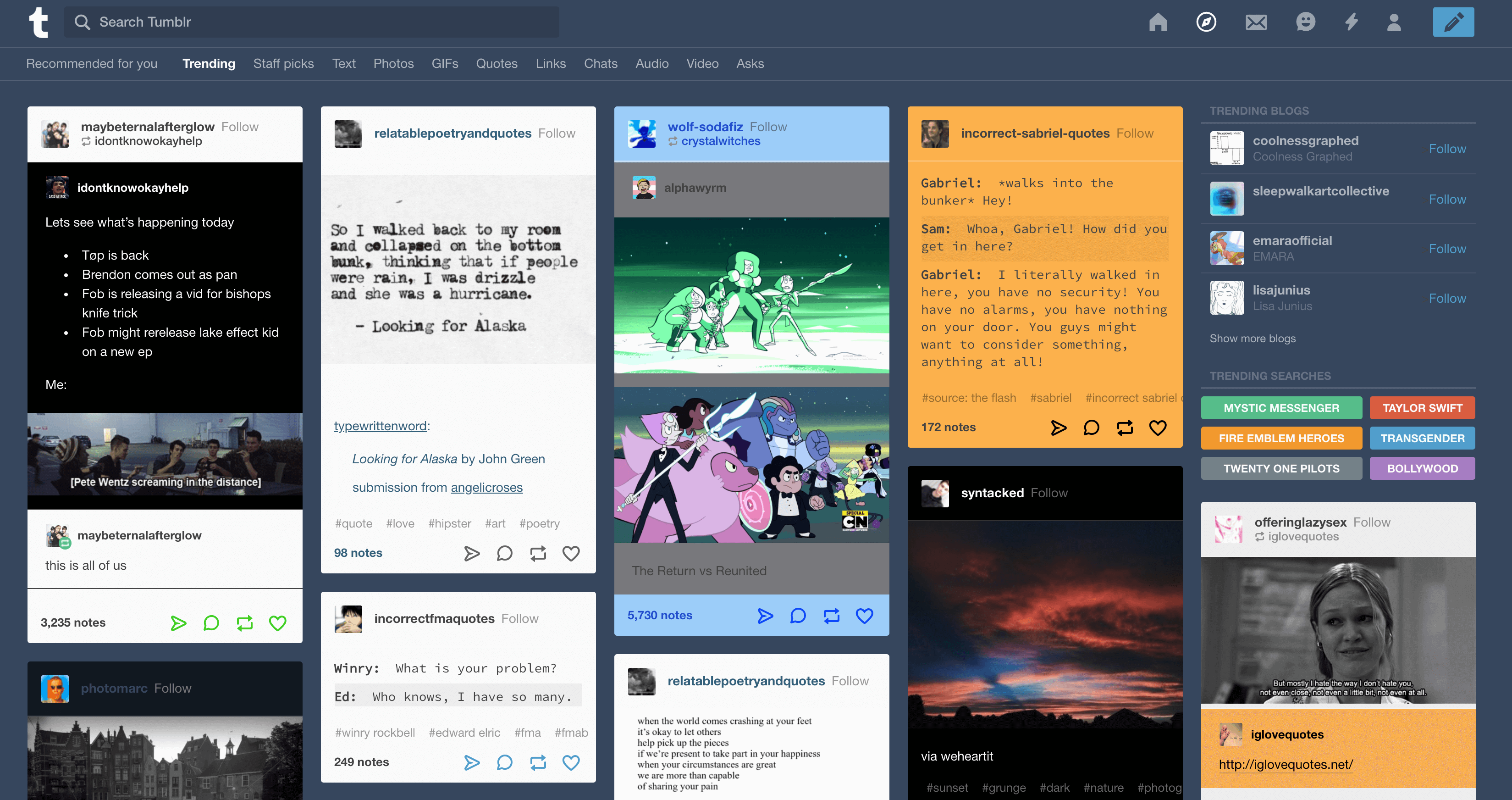
Tumblr is another hugely popular, entirely free platform, but it’s also a very different beast to WordPress. Tumblr was only founded in 2007, but has since grown to include over 417 million blogs. Instead of being an all-inclusive website solution, Tumblr is a mix between a microblogging site and social media network, with a limited amount of customization and styling. As such, the content creation is more focused on smaller, more regular posts of many different types.
This lean towards short-form content and multimedia makes it a more casual and personal experience. Users can also like and ‘reblog’ each others’ posts, where each interaction is referred to as a ‘note’.
As such, we generally don’t recommend you use Tumblr for professional blogs. However, there are exceptions – companies such as Denny’s have managed to create a cult following based on their irreverent Tumblr feed. This is because Tumblr is as much a subculture as it is as a blogging platform, which Denny’s successfully tapped into.
However, Tumblr can also be a great tool for artists and photographers to spread their work, due to the focus on sharing content. However, you should ideally use this as a complement to your ordinary website. Tumblr is a little too limited in its customization and extensibility to be truly capable of replacing an entire site.
3. Medium
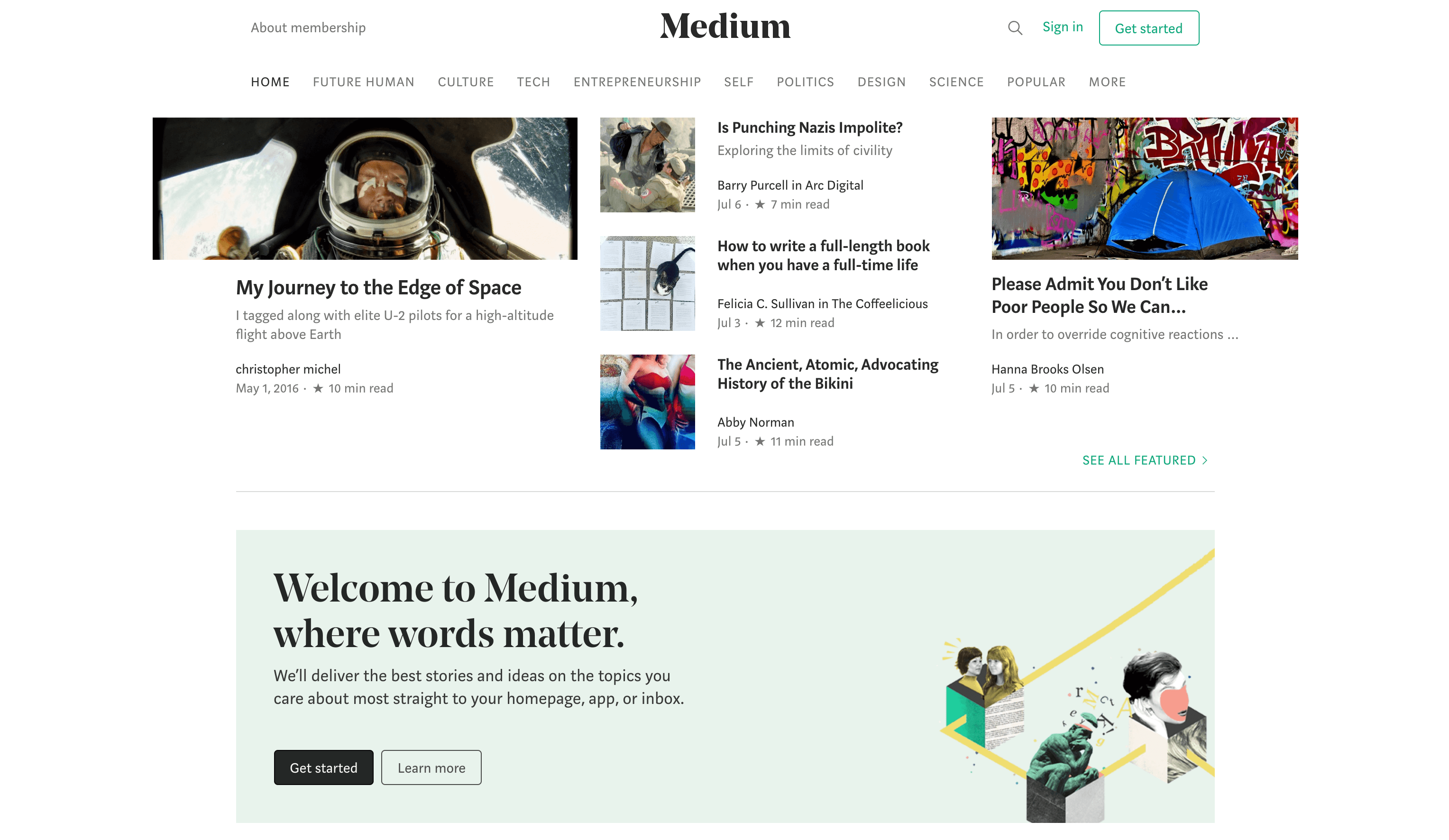
Medium is the youngest platform of the three, only launched in 2012. In this short time, it’s become a favorite among writers who want a simple blogging solution. In fact, the name itself refers to the fact that the platform is a “medium” between microblogging like Tumblr and more full-featured services such as WordPress.
The idea is that writing is at its core. Content creation is centered around a very clean What-You-See-Is-What-You-Get (WYSIWYG) interface, that makes it easy and satisfying to write and format your posts. As such, it’s a perfect outlet for text-heavy blogs and writers that don’t want to worry about building an entire website.
Medium is also great for getting eyes on your content. Sharing is encouraged on the platform, as is monetization, thanks to the free-to-join Medium Partner Program. This lets you earn money based on how often a post is shared or liked, which makes it a great choice for writers and journalists who want a no-frills outlet. However, the intentional minimalism can be a bit too limiting for everyone else.
Conclusion
Finding the right outlet for your writing skills is a crucial first step towards blogging stardom. There are plenty of platforms to choose from, but picking one that suits you doesn’t have to be a headache. As long as you understand your needs, choosing a blogging platform should be easy.
In this article, we’ve looked at three alternatives and discussed when you might want to use each for your blogging venture:
- WordPress.org: A full-featured platform that can be used for almost any purpose, but especially excels when it comes to blogging.
- Tumblr: A somewhat chaotic and irreverent microblogging service that works best for personal use.
- Medium: A very pared-down service that puts writing and text in the spotlight.
Do you have any questions about choosing a blogging platform? Let us know in the comments section below!
Image credit: Pixabay.



